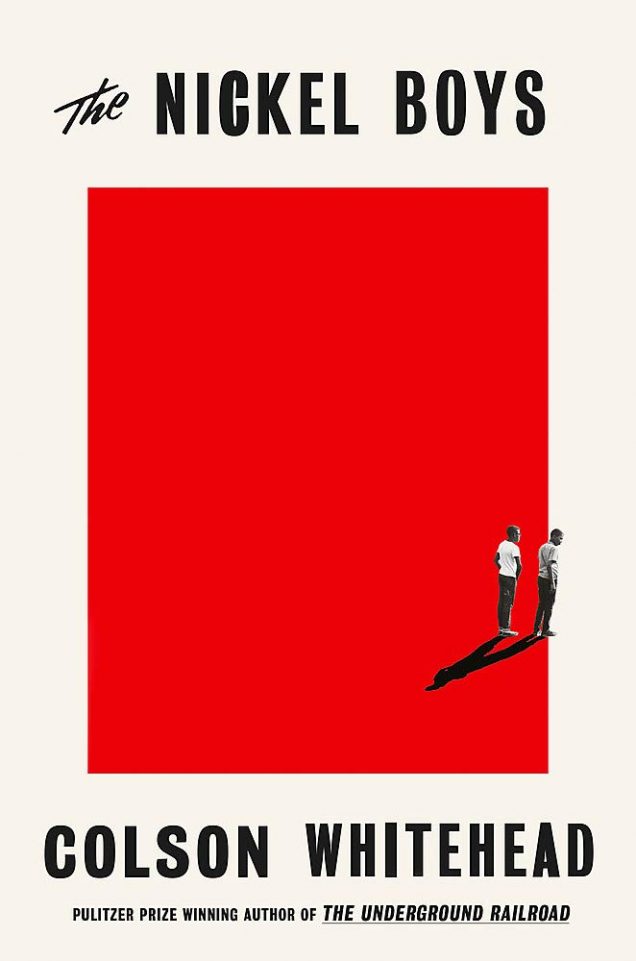Here’s the latest from our roaming correspondent, Bob Moyer, ever an eclectic and thoughtful reader.
Reviewed by Robert P. Moyer
NICKEL BOYS. By Colson Whitehead. Doubleday. 213 pages. $24.95

Colson Whitehead is an important writer. He’s a good, sometimes great writer, yes, but above all — he’s an important writer. He homes in on material that speaks to our consciousness, and then he brings a conceit, a motif that transforms his narrative into a vital part of our national saga. In The Underground Railroad, he took the story of a young slave girl escaping the South and put her on an actual underground train, which delivered her and his story to places and situations that resonated with our contemporary life. Now, with his latest, he again addresses a subject that keeps surfacing in our story — dead black men.
Boys, actually. In 2011, the Dozier School for Boys in Florida was shut down with allegations of horrific crimes committed in the “school’s” 111-year history. Shortly thereafter, an archaeological dig revealed 55 unnamed graves in a secret graveyard —and counting. Whitehead has built his fictional Nickel School for Boys out of those rancid materials.
Into that campus of evil, Whitehead drops one Elwood Curtis, deserted by his parents, raised by his grandmother. He’s a sharp boy, avoids trouble, and takes to heart Dr. King’s encomium, “You are as good as anyone.” Unfortunately, while hitching a ride to a prized college class in 1962, his first, he gets arrested — for riding in a stolen car. He didn’t know it, but that made no difference — it’s the segregated South, and boys of color from Tallahassee could be shipped to the Nickel School for any reason.
Within days of his arrival, Elwood’s worldview gets him sent to the White House, where the roar of the huge fan both announces that someone is being punished, and also covers the screams of the miscreant. When he emerges, he comes across Turner, who believes just the opposite from Elwood — get down, get by, keep your wits. Elwood can’t believe the depths of deprivation in the place, sexual abuse, boys disappearing, goods intended for the boys disappearing into the community, money disappearing into the administration’s pockets. As crimes accumulate, the narrative takes on the inexorable weight of impending death.
But not just the actual “disappearances,” or the deaths of “graduates” who end up “Dead in prison, or decomposing in rooms they rented by the week, frozen to death in the woods after drinking turpentine.” No, Whitehead gives us the tragedy of another kind of death—the loss of possibility: “The boys could have been many things had they not been ruined by that place …. All those lost geniuses — sure not all of them were geniuses, Chickie Pete for example was not solving special relativity — but they had been denied even the simple pleasure of being ordinary.” Turner and the world keep whispering to him, “Do not love for they will disappear, do not trust for you will be betrayed, do not stand up for you will be swatted down.” Through it all, Elwood holds on to Dr. King’s words: ”Throw us in jail and we will still love you.”
Just when the tension and the plot come to a head, Whitehead makes a move that resolves the tension, brings the indomitability of the human spirit to the fore, and elevates these individuals’ lives into our national dialogue. No spoilers here, only a deep appreciation to a writer who understands just how much pain a reader can take, and then makes them consider who we are as a nation. It’s a remarkable read. Don’t miss it.